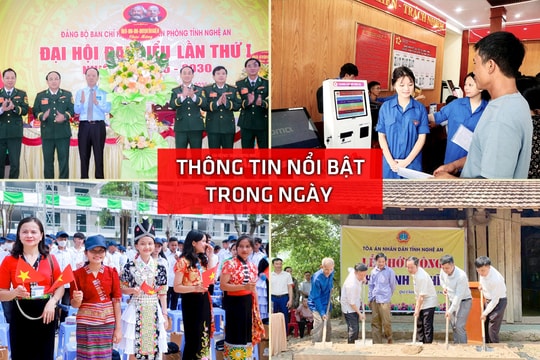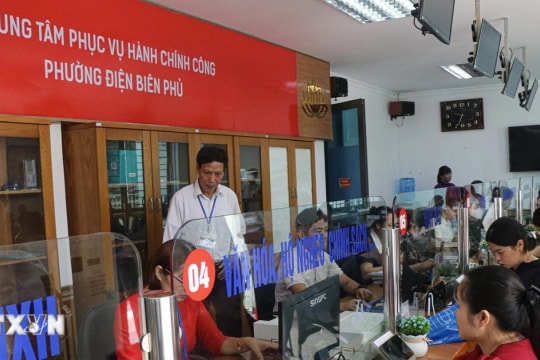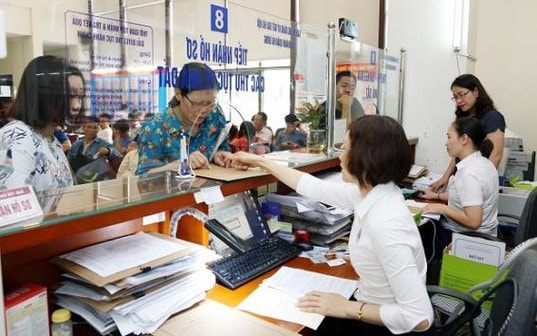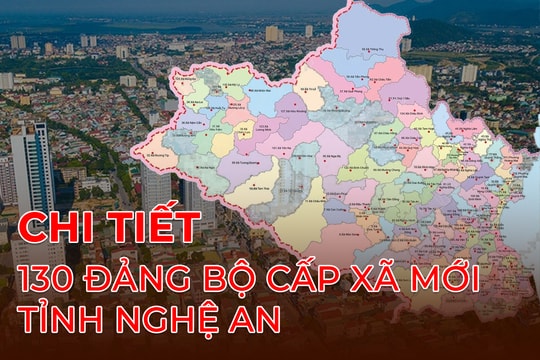Overcoming difficulties, continuing to arrange administrative units at commune and district levels in Nghe An in 2024
(Baonghean.vn) - At the Conference on implementing the arrangement of administrative units at district and commune levels in the period of 2023 - 2025, many localities raised difficulties and problems that need to be resolved to continue implementing phase 2. In particular, the biggest problem is the surplus of staff and excess headquarters.
On August 21, the Provincial People's Committee held an online conference to deploy the implementation of administrative unit arrangement at district and commune levels for the period 2023 - 2025.
Comrade Nguyen Van De - Vice Chairman of the Provincial People's Committee chaired the conference. Comrades: Nguyen Viet Hung - Director, Tran Quoc Chung - Deputy Director of the Department of Home Affairs co-chaired. Attending the Provincial People's Committee were representatives of relevant departments and branches; at the district, city and town levels were representatives of the People's Committee and relevant professional departments.
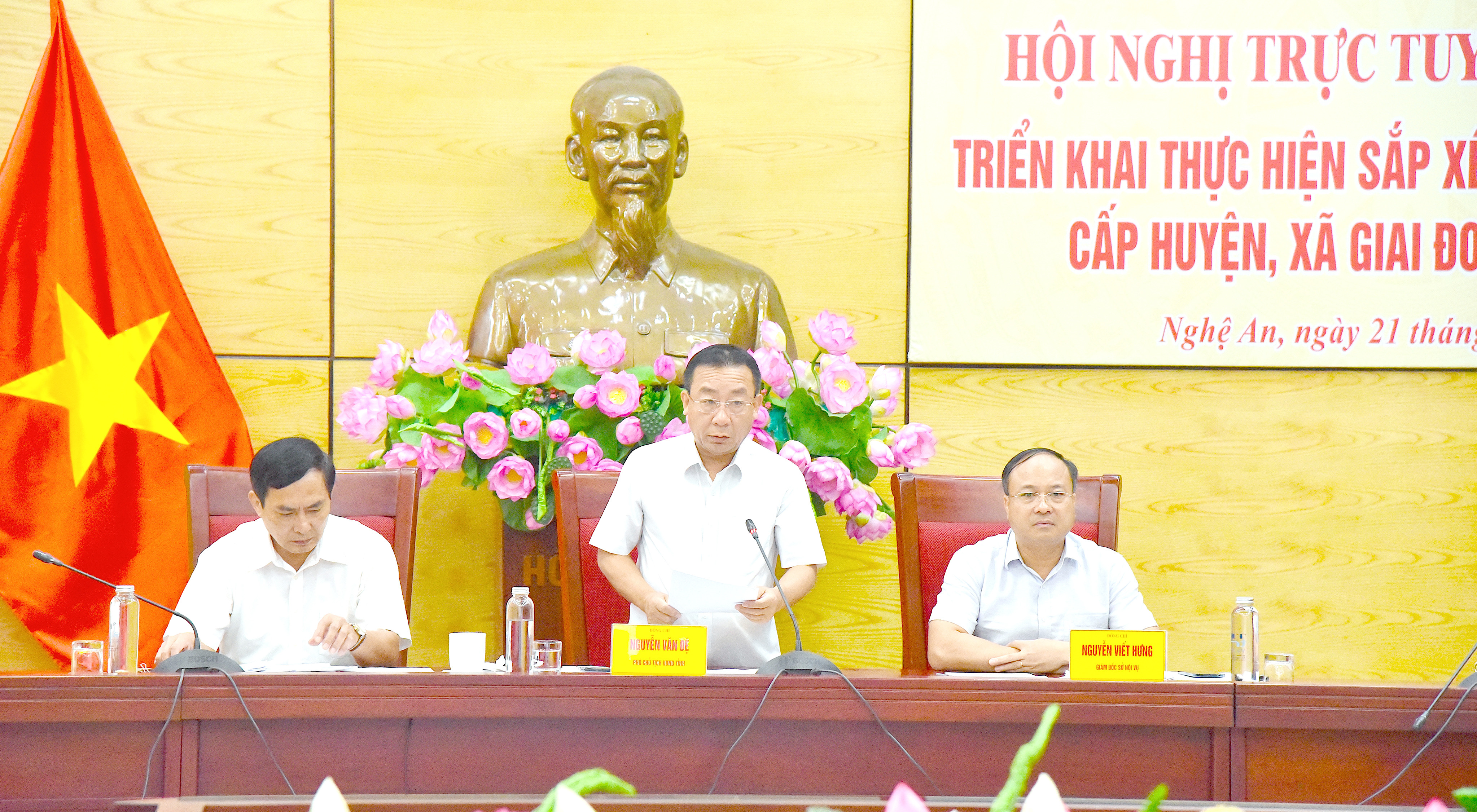
Comrade Nguyen Van De said that after the reorganization of district and commune-level administrative units in the 2019-2021 period, the whole province has reduced 20 commune-level administrative units and reduced 2,085 hamlets, blocks, and villages. The reorganization of commune-level administrative units has contributed to streamlining the organization of the political system; restructuring and improving the quality and public service responsibilities of the team of cadres, civil servants, and public employees; streamlining the payroll; and reducing state budget expenditures. At the same time, the reorganization of administrative units has also contributed to expanding development space, concentrating resources, promoting the potential and advantages of localities for sustainable development.
However, in addition to the positive results achieved, the arrangement of commune-level administrative units in the period of 2019 - 2021 also has some difficulties and problems. Specifically, the number of administrative units that do not meet the prescribed standards is still large. The arrangement and settlement of regimes and policies for redundant officials and civil servants is not timely. The arrangement and arrangement of redundant agency and unit headquarters in some localities still has many shortcomings.
Therefore, to implement the Party's policy on continuing to rearrange administrative units at district and commune levels, the Vice Chairman of the Provincial People's Committee requested departments, branches and localities to review difficulties and obstacles in the process of implementing the rearrangement of administrative units at district and commune levels in the 2023-2025 period and the 2026-2030 period.
In particular, although Conclusion No. 48-KL/TW of the Politburo and the Resolution of the National Assembly Standing Committee have stipulated the arrangement in two phases 2023-2025 and 2026-2030, the actual implementation time in each phase is very short and urgent to be in time for the preparation work for the Party Congresses at all levels for the term 2025-2030 (the grassroots Party Congress is expected to take place in the first quarter of 2025). Therefore, it is recommended that delegates thoroughly discuss the roadmap for timely and effective implementation.
Comrade Nguyen Van De suggested that localities that have implemented the arrangement of district and commune-level administrative units in the 2019-2021 period share good lessons and good practices; find ways to overcome existing problems and limitations in the process of arranging administrative units in the 2019-2021 period, in order to promptly remove and promote efficiency to better organize the implementation of the arrangement of district and commune-level administrative units in the 2023-2025 period.
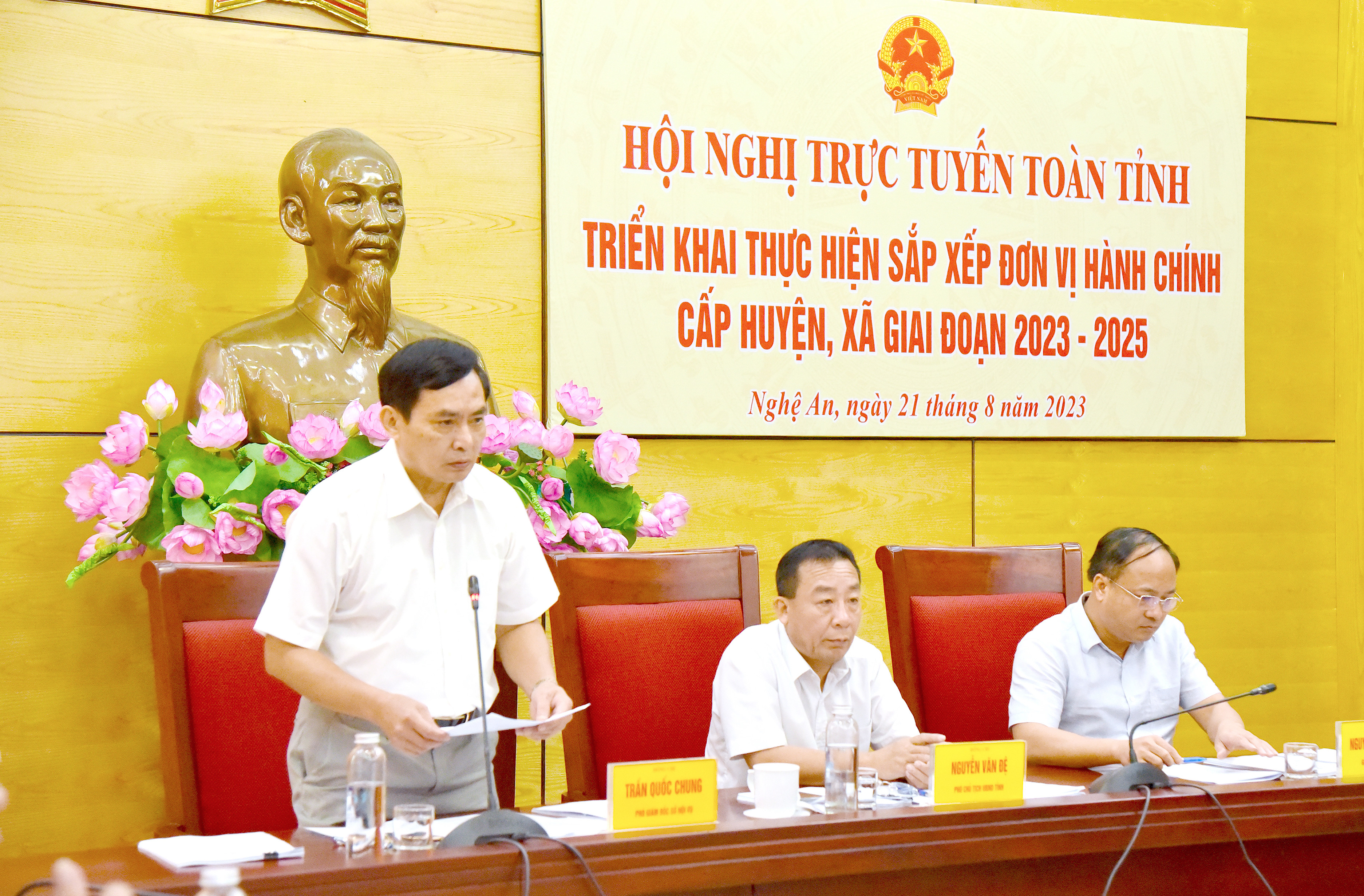
Localities propose to remove obstacles after phase 1 merger
Phase 1 of the arrangement of district and commune-level administrative units in Nghe An will be implemented from 2019 to 2021. After the arrangement and merger of communes and hamlets, localities still have many unresolved problems and difficulties. At the conference, localities presented the current situation and the problems that need to be solved to facilitate the arrangement of administrative units in phase 2.
Speaking at the conference, a representative of the People's Committee of Hung Nguyen district said that in the period of 2019 - 2021, the district has reduced from 21 communes to 16 communes. Besides sharing experiences in organizing the merger of communes and hamlets in phase 1, the leader of the People's Committee of Hung Nguyen district also pointed out the unresolved problems.
Accordingly, in the coming time, Hung Nguyen district will have 6 communes merged into 3 communes in phase 2. Up to now, the plan and objectives have been disseminated and the people have basically agreed. However, Hung Nguyen proposed that the arrangement of jobs for redundant staff is still inadequate when there are still 26 people out of 106 people in 5 communes after the merger that have not been arranged yet; if the merger continues, there will be 60 more redundant people. Therefore, the locality expressed its desire for support from higher levels to resolve this difficulty, creating favorable conditions for the district to continue arranging phase 2. In addition, there are still no specific instructions on the implementation funding issue, and it is recommended that there be specific instructions in writing.
In Nam Dan district, Chairman of the district People's Committee Nguyen Hong Son stated that the biggest difficulty after the first phase of administrative unit arrangement was the surplus of cultural houses in blocks and hamlets with 102 houses and 5 medical stations; the surplus of 162 civil servants, of whom 52 have not yet been assigned suitable jobs.
That reality leads to concerns among cadres and civil servants after the merger of communes and hamlets. In the period of 2023 - 2025, according to the plan of the Provincial People's Committee, Nam Dan district will merge 4 units into 2, that is, Nam Nghia commune will merge with Nam Thai commune, Hong Long commune will merge with Xuan Long commune. It is expected that after the merger, there will be 2 surplus commune People's Committee headquarters, 2 medical stations and 30 redundant cadres and civil servants, bringing the total number to 82 redundant people. Old difficulties have not been resolved, new difficulties will continue, so the locality is very worried, hoping that all levels and sectors will provide maximum support and guidance to resolve them.
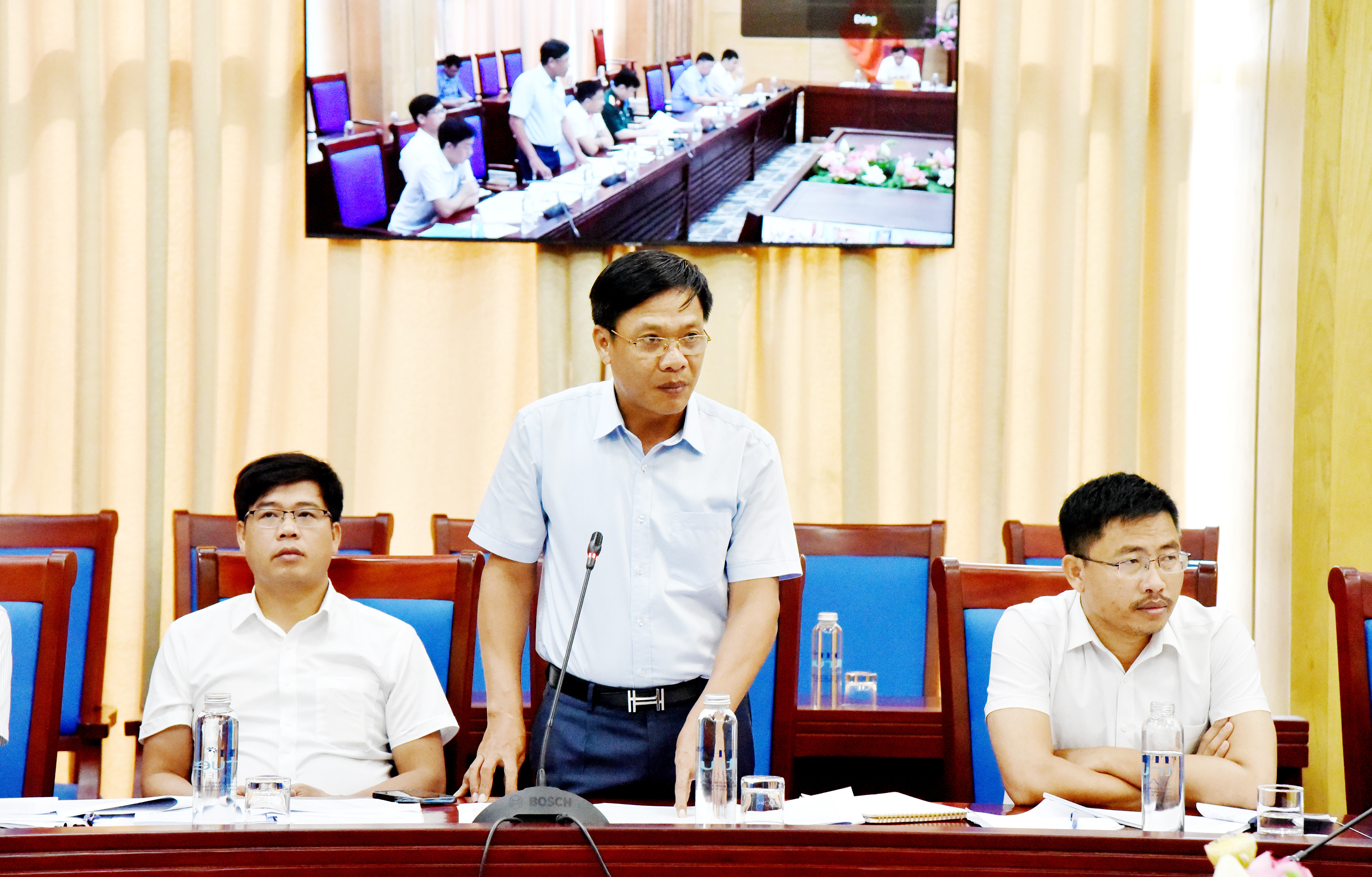
Another difficulty in resolving the problems after the merger of communes and hamlets in Nam Dan was also mentioned by the Chairman of the District People's Committee at the conference, which is the auction of headquarters and medical stations. There are almost no participating units. Therefore, the district proposed that all levels and sectors support the locality in valuation and auction of assets after the merger; have a stronger mechanism in arranging redundant civil servants, possibly in the direction of supporting career conversion...
Also at the conference, representatives of the Department of Home Affairs, Department of Construction, and Department of Finance answered the localities about resolving difficulties in implementing the merger of administrative units. Comrade Nguyen Viet Hung - Director of the Department of Home Affairs affirmed that the merger of administrative units at district and commune levels will be implemented in parallel with the merger of communes and hamlets and the arrangement of jobs for redundant staff. It is requested that departments and branches, when receiving information from the locality, promptly carry out related tasks to speed up the arrangement progress. The province has also identified many difficulties and obstacles and will make every effort to support the locality in implementing them.
The representative of the Department of Home Affairs also requested that localities review the current situation of civil servants in the area in terms of quality, quantity and plans for arranging civil servants, giving priority to arranging redundant civil servants.
Mr. Tran Viet Dung - Deputy Director of the Department of Finance said, regarding concerns about handling assets after the first phase of merger, Nghe An still has 17 districts and 600 assets that have not been processed after 5 years of merger. This is also a concern of the province when there are still many difficulties in implementation. In the options for handling public assets after the merger, the auction and recovery option is facing difficulties in procedures and documents, especially the lack of documents in the auction. It is very difficult for contractors to participate in the auction because it involves assets on land. The approval of the starting price must take into account the price of assets on land, while investors when auctioning mainly buy land. Mr. Tran Viet Dung affirmed that the Department of Finance will advise the Provincial People's Committee to have a plan to resolve this.
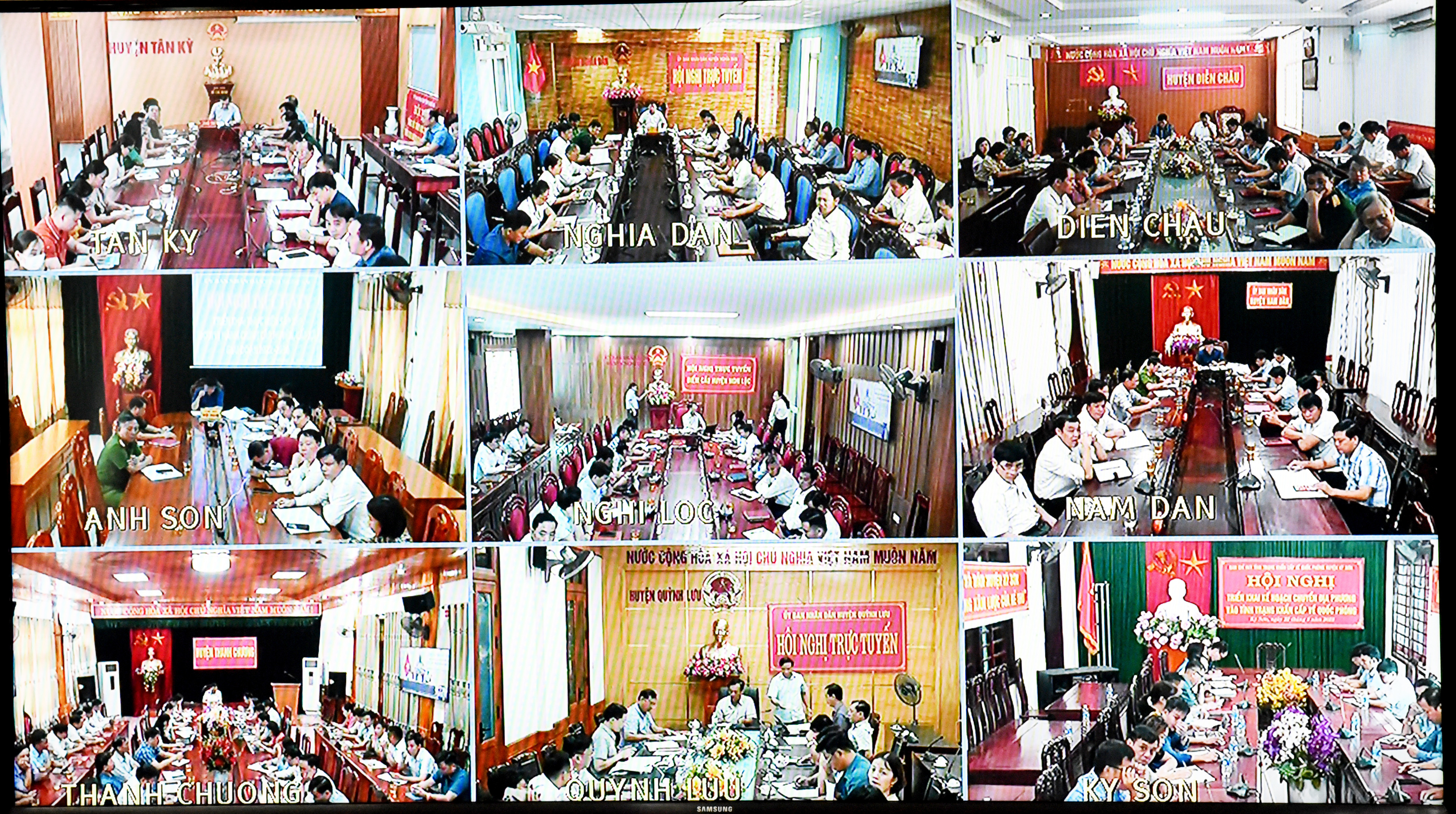
Concluding the conference, Comrade Nguyen Van De - Vice Chairman of the Provincial People's Committee presented 8 tasks and solutions to effectively and properly implement the roadmap for administrative unit arrangement in phase 2. In which, focusing on tasks such as: Methodical and unified implementation, creating high consensus among cadres and people before, during and after implementation; promoting the role and responsibility of leaders, high political determination in implementation; the arrangement process must be consistent with the planning, meeting the requirements of sustainable development.
In addition, comrade Nguyen Van De noted that the arrangement of administrative units must be associated with innovation in streamlining the organization and apparatus, operating effectively and efficiently, ensuring administrative reform and digital transformation; focusing on considering special and specific factors; at the same time, thoroughly resolving existing problems, implementing reasonable policies for civil servants after the arrangement; facilitating socio-economic activities, national defense and security, towards building a truly streamlined and effective political system.

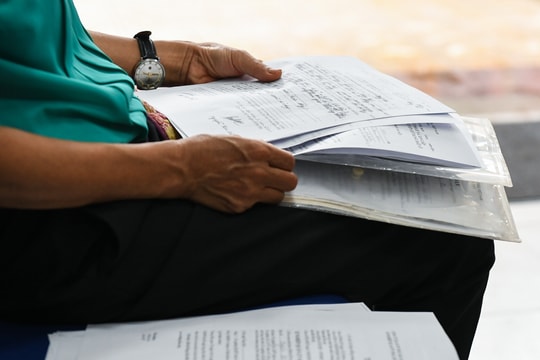
.jpg)
.jpg)
